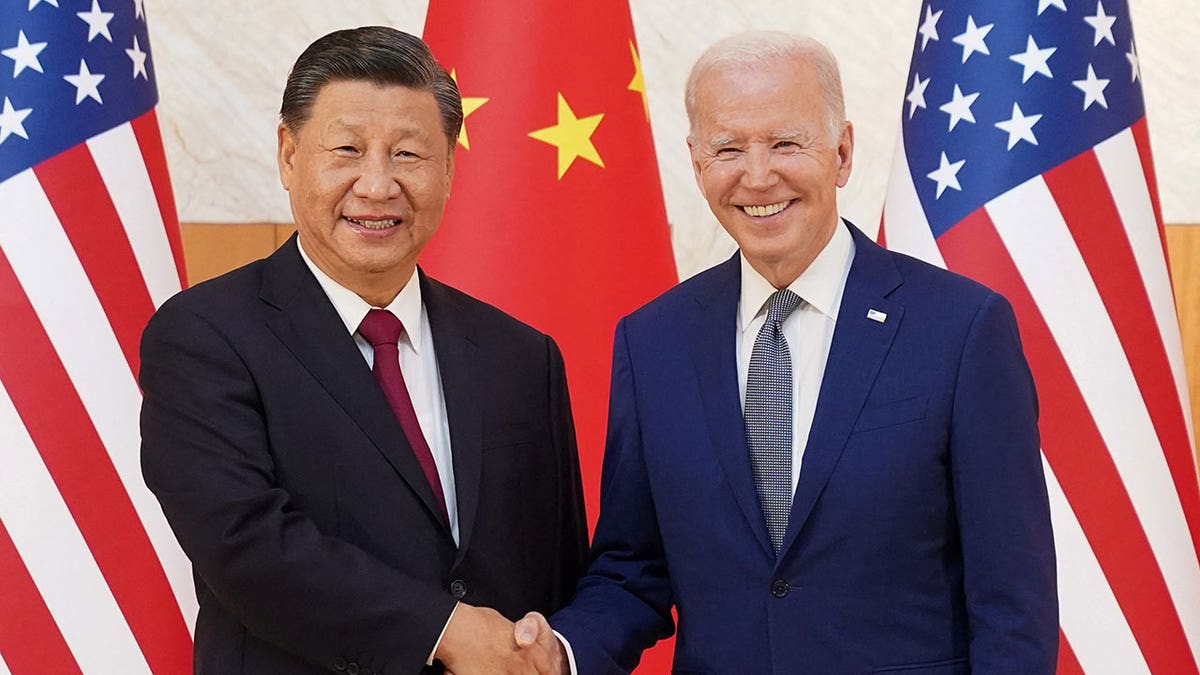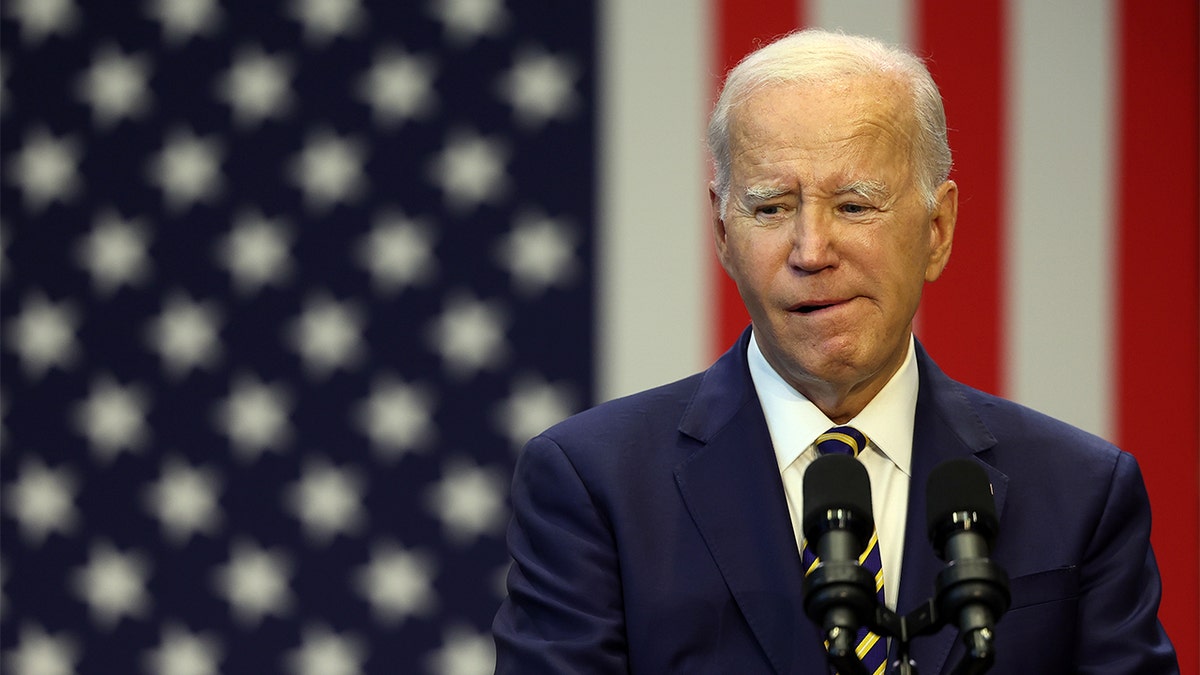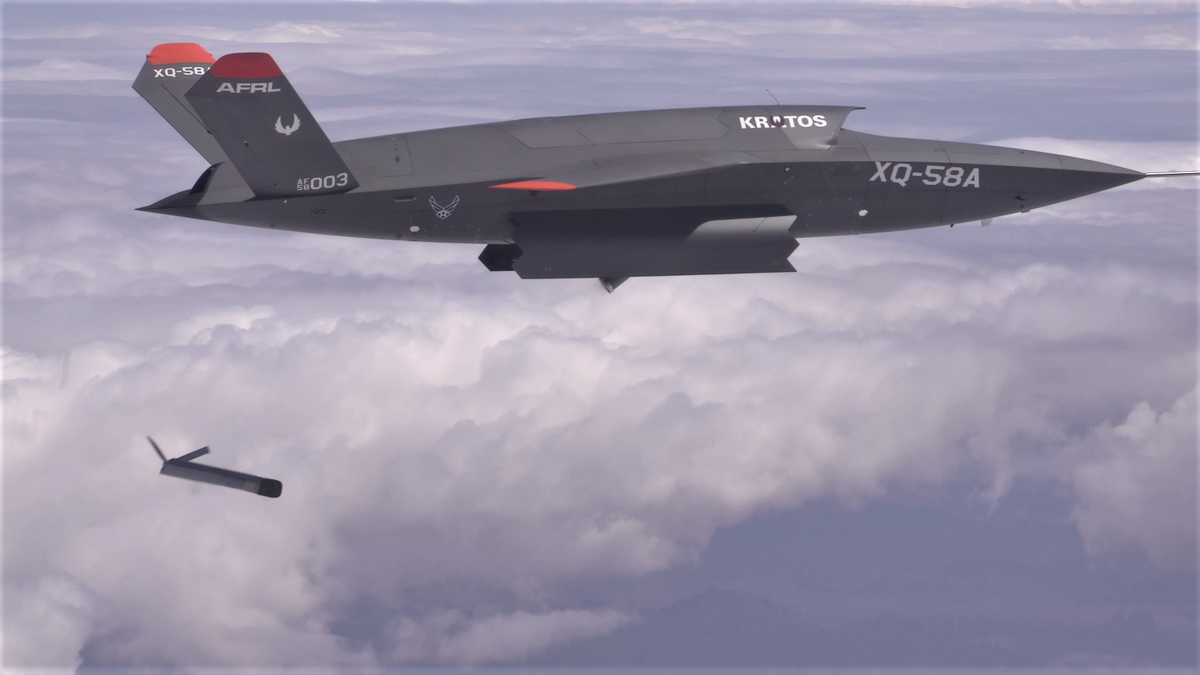WATCH LIVE: AI on the battlefield in hot seat on Capitol Hill
House Armed Services Committee holds a hearing on the Department of Defense using artifical intelligence.
President Biden is set to strike a deal with China that would limit the use of artifical intelligence in nuclear weapons.
Biden is to meet with Chinese President Xi Jinping on Wednesday at the Asia-Pacific Economic Cooperation (APEC) summit in San Francisco, where the two leaders are expected to also sign an agreement to limit AI's use in military applications, according to a report from Business Insider.
According to the report, Biden and Xi will agree to limit AI use in the systems that control and deploy nuclear weapons as well as the technology's use in autonomous weapon systems such as drones.
US MILITARY NEEDS AI VEHICLES, WEAPON SYSTEMS TO BE 'SUPERIOR' GLOBAL FORCE: EXPERTS

President Biden shakes hands with Chinese President Xi Jinping as they meet on the sidelines of the G20 leaders summit in Bali, Indonesia, on Nov. 14, 2022. (Reuters / Kevin Lamarque)
The deal comes as the two countries have frequently found themselves at odds, with tensions continuing to flare over issues that include China's spying activities in the U.S. and its continued military buildup in the South China Sea. But the deal comes at the same time as many have warned about the growing implications of allowing unfettered AI use in combat, a new reality that has led to growing ethical concerns.
Phil Siegel, the founder of the Center for Advanced Preparedness and Threat Response Simulation (CAPTRS), told Fox News Digital that such an agreement is "necessary," though he argued that other major powers such as Russia should be involved in the pact as well.
"I predict they will make a deal on AI-driven autonomous weapons on the battlefield should only be for reconnaissance and not fighting; otherwise, the world will become a very dangerous place," Siegel said. "I think there is more to come, and it is necessary to keep us from devolving to continual war."
"This is an incredibly poor decision. … China lags behind the U.S. in AI capabilities, so the Biden administration just ceded a strategic advantage."
But Christopher Alexander, the chief analytics officer of Pioneer Development Group, questioned the need for such a deal, pointing out that the U.S. would be giving up a strategic advantage it currently holds over China.

President Biden (Kevin Dietsch / Getty Images / File)
US, NOT CHINA, SHOULD TAKE LEAD ON AI
"This is an incredibly poor decision," Alexander told Fox News Digital. "To begin with, China lags behind the U.S. in AI capabilities; so the Biden administration just ceded a strategic advantage. Additionally, AI helps reduce stress to improve decision-making, which is crucial in preventing a poor decision to release nuclear weapons."
Both China and the U.S. have raced to integrate the use of AI into the military as the technology continues to rapidly advance, paving the way for applications that would be useful in combat. But both countries have also seemingly realized the danger in allowing AI's unfettered use, with the two sides both being party to an agreement earlier this year that endorsed the responsible use of AI in the military.
But Samuel Mangold-Lenett, a staff editor at The Federalist, questioned whether China could be depended upon to honor such an agreement, pointing to the country's lack of adherence to the Paris Climate Agreement.

The XQ-58A Valkyrie demonstrates the separation of the ALTIUS-600 small unmanned aircraft system at the Army Yuma Proving Ground test range in Arizona on March 26, 2021. (U.S. Air Force courtesy photo)
CLICK HERE TO GET THE FOX NEWS APP
"It is foolish to believe China will honor any agreement limiting the use of AI in nuclear weapons. Look at the Paris Climate Agreement: despite agreeing to reduce carbon emissions, China continued to be one of the world's worst polluters. It similarly has no regard for human rights or intellectual property," Mangold-Lenett told Fox News Digital.
"Chinese leadership has no regard for agreements that could slow down its quest for destabilizing the world order and displacing the U.S. as hegemon. The U.S. should continue developing AI systems that ensure national security and advance our interests — our enemies will surely do the same."
The White House did not immediately respond to a Fox News request for comment.


